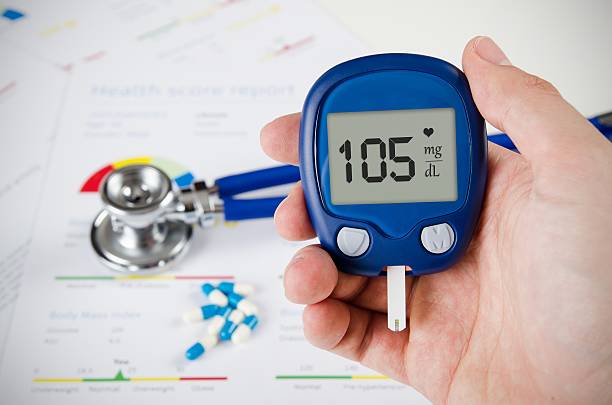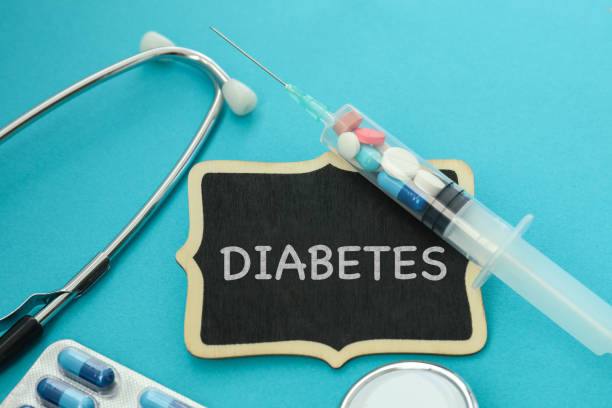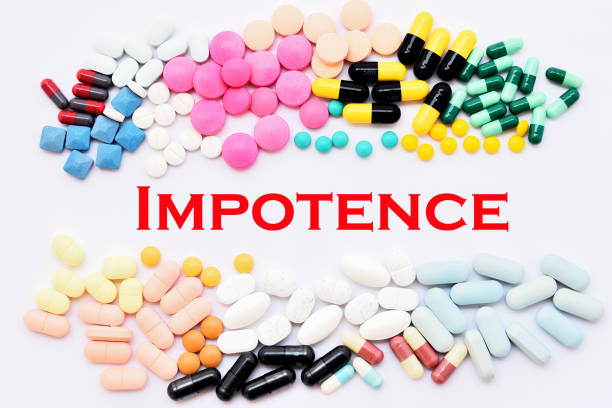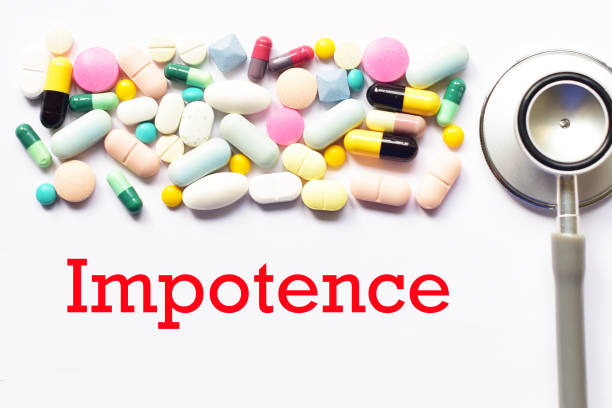Introduction: Understanding the Link Between Diabetes and Erectile Dysfunction
Diabetes is a widespread chronic condition that affects millions of people globally. While most people are aware of the common symptoms and complications of diabetes, one lesser-known issue it can cause is erectile dysfunction (ED). ED is a condition that impacts many men’s ability to maintain sexual health and function. So, how exactly does diabetes contribute to the development of ED? Understanding the connection between these two health conditions is crucial for managing both and improving your overall well-being.
In this article, we will dive into the relationship between diabetes and erectile dysfunction, explore the various factors that contribute to ED in diabetic individuals, and offer practical tips on how to manage or even prevent this condition. Whether you’re personally living with diabetes or supporting someone who is, this guide will provide valuable insights to help you better navigate the complexities of diabetes and sexual health.
What Is Erectile Dysfunction?
Before we explore the link between diabetes and erectile dysfunction (ED), it’s important to first understand what ED is. Erectile dysfunction is the inability to achieve or maintain an erection that is firm enough for sexual activity. This condition can be caused by a variety of factors, including physical health issues, emotional challenges, and lifestyle choices.
Some of the most common causes of ED include:
- Poor blood circulation
- Nerve damage
- Hormonal imbalances
- Psychological stress and anxiety
Although ED can affect men at any age, it is more common in older men and those with chronic health conditions, such as diabetes. Understanding these causes is key to identifying potential treatment options and improving sexual health.

How Diabetes Contributes to Erectile Dysfunction
Diabetes, especially when it is not properly managed, can cause damage to blood vessels and nerves throughout the body. This damage is a key factor in the development of erectile dysfunction (ED). Understanding how diabetes affects your body can help you see why it’s linked to ED. Here’s how it works:
1. Poor Blood Flow
When blood sugar levels remain high for an extended period, they can damage blood vessels throughout the body, including those that supply blood to the penis. This damage weakens the blood vessels, making it harder for them to carry enough blood to the penis, which is essential for achieving and maintaining an erection. Since erections depend on proper blood circulation, any reduction in blood flow can lead to difficulty in getting or keeping an erection.
2. Nerve Damage (Neuropathy)
Diabetes can cause nerve damage, especially in areas like the hands, feet, and internal organs. When the nerves that control the penis are affected, it can become more difficult to feel the sensations necessary for an erection. This type of nerve damage is called diabetic neuropathy, and it plays a major role in erectile dysfunction (ED) in men with diabetes. As these nerves become damaged over time, the ability to respond to sexual stimulation can be reduced, making it harder to achieve or maintain an erection.
3. Hormonal Imbalances
Diabetes can interfere with the body’s hormone levels, especially testosterone. Testosterone is an important hormone for maintaining sexual function, and when its levels drop, it can lead to erectile dysfunction (ED). Low testosterone can decrease sexual desire and make it more difficult for men to achieve or maintain an erection. Hormonal imbalances like these are common in men with diabetes and are another key factor contributing to ED.
4. Psychological Effects
Living with diabetes can bring about stress, anxiety, and depression, all of which can negatively affect sexual health. The constant management of the condition, along with concerns about its impact on daily life, can lead to feelings of being overwhelmed. These psychological factors can, in turn, make erectile dysfunction (ED) worse. For men with diabetes, the mental strain of dealing with the disease often adds an emotional layer to sexual health challenges, making it even harder to achieve or maintain an erection.
Risk Factors for Erectile Dysfunction in Men with Diabetes
There are several factors that can increase the chances of developing erectile dysfunction (ED) in men with diabetes. These risk factors include:
- Duration of diabetes: The longer someone has lived with diabetes, the higher the risk of developing ED. Over time, high blood sugar can cause more damage to the nerves and blood vessels that are crucial for sexual function.
- Poor blood sugar control: When blood sugar levels are not well-managed, the risk of nerve and blood vessel damage increases. This damage can interfere with the ability to get or maintain an erection.
- Age: As men age, the risk of ED increases, especially for those with diabetes. Older men are more likely to experience both the physical and hormonal changes that contribute to erectile dysfunction.
- Obesity: Carrying excess weight can lead to insulin resistance, which worsens both diabetes and ED. Obesity is a significant factor in worsening overall health, including sexual health.
- Smoking: Smoking damages blood vessels and reduces blood flow, which further increases the risk of erectile dysfunction. Men with diabetes who smoke are at an even higher risk of ED due to the combined effects of both smoking and the disease.
Symptoms of Erectile Dysfunction in Diabetes
The symptoms of erectile dysfunction (ED) in men with diabetes are similar to those experienced by men without diabetes. These symptoms include:
- Difficulty achieving an erection
- Inability to maintain an erection during sexual activity
- Reduced sexual desire or arousal
If you notice any of these signs, it’s important to speak with your healthcare provider. Addressing ED early can help prevent the condition from getting worse and allow for more effective treatment options. By discussing your symptoms with your doctor, you can take the first steps toward improving both your sexual and overall health.

Treatment Options for Erectile Dysfunction in Men with Diabetes
Fortunately, there are many treatment options for men with diabetes who experience erectile dysfunction (ED). These treatments vary from simple lifestyle changes to medications and other medical interventions. By addressing the underlying causes of ED, such as poor blood sugar control, nerve damage, or hormonal imbalances, men can find solutions that work for their individual needs. Whether it’s making healthier lifestyle choices, taking prescribed medications, or exploring other medical therapies, there are multiple ways to improve erectile function and enhance quality of life.
1. Lifestyle Changes
Making healthier lifestyle choices can greatly improve both diabetes management and sexual health. By making these changes, men with diabetes can experience better control over their condition and reduce the risk of erectile dysfunction (ED). Consider the following adjustments:
- Maintain a healthy weight: Losing excess weight can improve insulin sensitivity and lower the risk of ED. Maintaining a healthy weight also helps with overall health and better blood sugar control.
- Exercise regularly: Regular physical activity improves blood circulation, enhances blood sugar control, and contributes to overall well-being. Exercise is not only good for heart health but also plays a key role in improving sexual function.
- Quit smoking: Smoking harms blood vessels and reduces blood flow, which can make ED worse. Stopping smoking helps improve circulation and overall sexual health.
- Limit alcohol intake: Drinking too much alcohol can contribute to erectile dysfunction by affecting hormone levels and blood flow. Reducing alcohol consumption can improve both sexual function and diabetes management.
2. Medications
There are several medications available that can help treat erectile dysfunction (ED) in men with diabetes. These medicines work by improving blood flow and making it easier to get and keep an erection. One of the most common types of ED medications includes:
- Phosphodiesterase type 5 inhibitors (PDE5 inhibitors): These medications include Viagra (sildenafil), Cialis (tadalafil), and Levitra (vardenafil). They help relax the blood vessels in the penis, allowing more blood to flow in during sexual arousal. This increased blood flow helps men achieve and maintain an erection strong enough for sexual activity.
Always talk to your healthcare provider before starting any medication, especially if you have other health conditions or are taking medications for diabetes.
3. Hormonal Therapy
If erectile dysfunction (ED) is linked to low testosterone levels, your doctor may recommend testosterone replacement therapy (TRT). Low testosterone can reduce sexual desire and make it harder to get an erection. TRT can help restore hormone levels and improve sexual function. This treatment is available in several forms, including:
- Injections: Given by a healthcare provider or at home to boost testosterone levels.
- Patches: Worn on the skin and changed regularly to release testosterone into the body.
- Gels: Applied to the skin daily, allowing testosterone to absorb into the bloodstream.
Before starting hormonal therapy, it’s important to have your testosterone levels checked and discuss the possible benefits and side effects with your healthcare provider.
4. Vacuum Erection Devices
A vacuum erection device (VED) is a non-invasive and drug-free treatment option for erectile dysfunction. It works by placing a plastic cylinder over the penis and using a pump to create a vacuum. This vacuum draws blood into the penis, helping to produce an erection. Once the erection is achieved, a tension ring is placed at the base of the penis to maintain it during sexual activity. VEDs are safe, easy to use, and can be a good option for men who prefer not to take medications or who cannot use them due to other health concerns.
5. Surgical Options
In some cases, when other treatments don’t work, surgery may be needed to treat erectile dysfunction (ED). Surgical options are usually considered for men with severe ED or those who haven’t had success with medications or devices. Two common surgical treatments include:
- Penile implants: These are devices placed inside the penis that allow a man to get an erection whenever he chooses. There are different types, including inflatable and semi-rigid implants.
- Vascular surgery: This type of surgery can help improve blood flow to the penis by repairing damaged blood vessels. It’s usually recommended for younger men with specific blood flow problems.
Surgery is often seen as a last resort, but it can offer a permanent solution for some men with diabetes-related ED.
6. Counseling and Therapy
Emotional and mental health can have a big impact on erectile dysfunction (ED). Many men with diabetes feel stress, anxiety, or even depression, which can make ED worse. In these cases, counseling or therapy can be very helpful. Talking to a licensed therapist can help you manage your feelings, improve your confidence, and reduce performance anxiety.
Therapy may involve:
- Individual counseling to explore personal stress or emotional struggles
- Couples therapy to improve communication and intimacy with your partner
- Cognitive behavioral therapy (CBT) to help change negative thought patterns
Getting support for your mental health is just as important as treating physical symptoms.

Preventing Erectile Dysfunction in Diabetes
While ED is common in men with diabetes, there are steps you can take to reduce your risk:
- Control your blood sugar: Keeping your blood glucose levels within a healthy range can prevent nerve and blood vessel damage that leads to ED.
- Monitor your cholesterol levels: High cholesterol can further damage blood vessels and increase the risk of ED.
- Regular check-ups: Routine check-ups with your doctor will help monitor your diabetes and identify any early signs of complications, including ED.
- Stay active: Exercise can help control blood sugar and improve circulation, which can reduce the risk of ED.
Conclusion: Take Action to Improve Your Sexual Health
Erectile dysfunction is a common issue for men with diabetes, but it is not inevitable. By understanding the connection between diabetes and ED, you can take proactive steps to manage your condition and improve your sexual health. Lifestyle changes, medications, and other treatments can help you regain control and enjoy a fulfilling sex life.
If you’re experiencing erectile dysfunction, talk to your healthcare provider. They can help you explore treatment options and develop a plan to manage both your diabetes and sexual health effectively.
Your Next Steps:
- Monitor your blood sugar levels regularly.
- Discuss treatment options with your healthcare provider.
- Make healthier lifestyle choices to manage both diabetes and erectile dysfunction.
If you found this article helpful, don’t hesitate to share it with others who may benefit from this information. Have questions? Leave a comment below, and let’s start a conversation!

